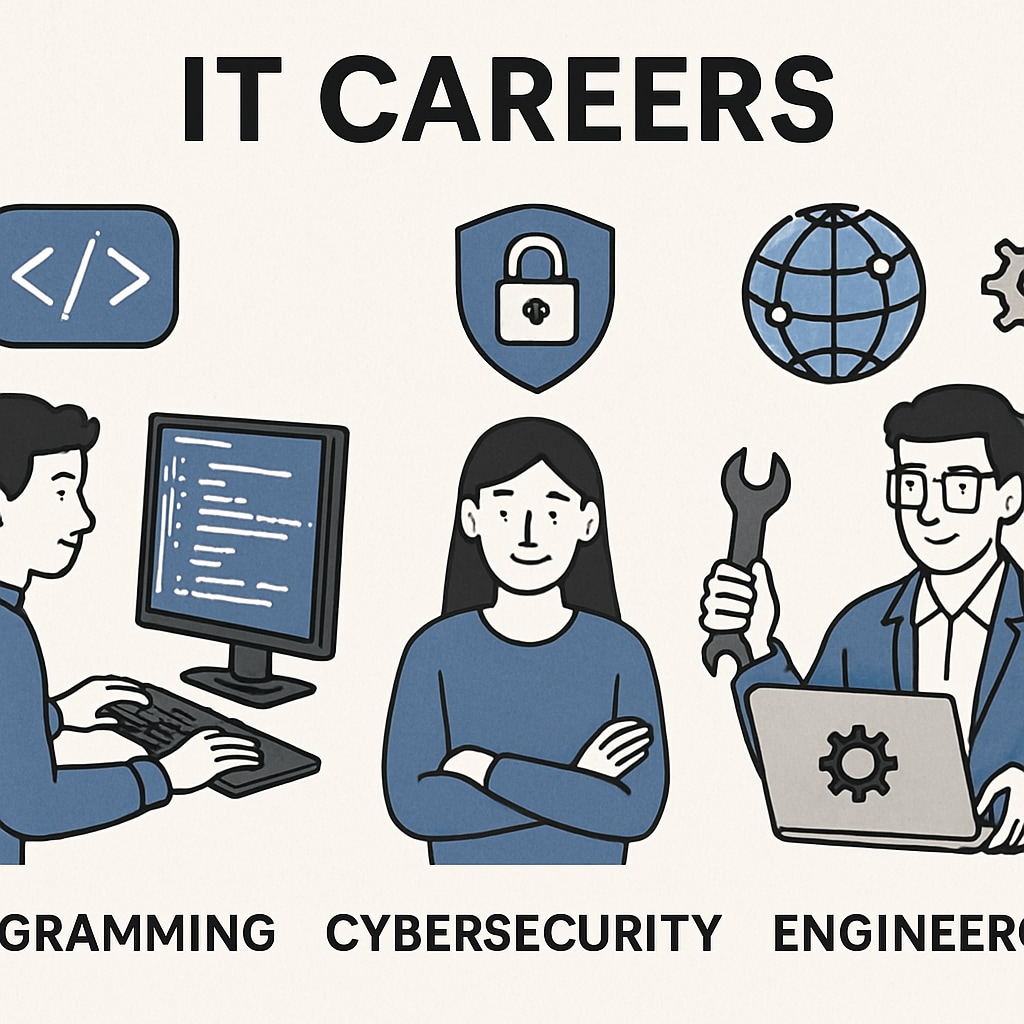Choosing the right career path can be daunting for university freshmen, especially when faced with the vast array of IT and technology-related majors. From cybersecurity and programming to electrical engineering and occupational safety, each field offers unique opportunities and challenges. This guide will help 18-year-old students navigate their options, assess their interests, and plan their future careers wisely.

Understanding Popular IT and Technology Fields
As the digital landscape evolves, several IT-related fields have emerged as top choices for students. Below are some of the most popular disciplines and their characteristics:
- Cybersecurity: This field focuses on protecting systems, networks, and data from cyber threats. With increasing cyberattacks, cybersecurity professionals are in high demand. Careers include ethical hacking, penetration testing, and forensic analysis.
- Programming: As the backbone of software development, programming involves coding and creating applications. Students can explore languages like Python, Java, and C++, and pursue roles such as software engineer, app developer, or system architect.
- Electrical Engineering: Focused on hardware and electronics, this field blends technology with hands-on work. It’s ideal for students interested in designing circuits, sensors, and other electrical systems.
- Occupational Safety and Health: Though less tech-focused, this area integrates technology to ensure workplace safety. It’s suitable for students interested in risk management and compliance roles.
Each of these fields offers unique career trajectories, and students should consider their personal interests and aptitudes when choosing a major.

Factors to Consider When Making Your Career Choice
To make an informed decision, it’s essential for university freshmen to consider several factors:
- Personal Interests: Reflect on what excites you. Do you enjoy problem-solving, building things, or ensuring safety?
- Skill Sets: Assess your current skills and identify areas for improvement. For example, programming requires analytical thinking and attention to detail.
- Industry Demand: Research which fields are growing and have strong career prospects. For instance, cybersecurity is projected to grow significantly in the coming years (Learn more about cybersecurity).
- Educational Resources: Consider the resources offered by your university, such as labs, internships, and mentorship programs.
- Long-term Goals: Visualize where you’d like to be in 10 years. Are you aiming for technical expertise, leadership roles, or entrepreneurship?
By aligning these factors with your chosen field, you can create a career roadmap tailored to your aspirations.
Tips for Navigating Career Confusion
It’s common for students to feel overwhelmed by their choices. Here are some actionable tips to ease the process:
- Seek Guidance: Speak with professors, career counselors, and industry professionals to gain insights.
- Experiment: Take introductory courses in multiple fields to test your interest and aptitude.
- Stay Updated: Follow tech blogs and industry news to understand emerging trends (Read more about IT trends).
- Network: Attend seminars and connect with peers to exchange ideas and experiences.
- Be Patient: It’s okay to explore and switch fields early in your academic journey.
Remember, your career choice is not set in stone. Adjustments and refinements are part of the journey.
Final Thoughts: Building a Bright Digital Future
Choosing a major is one of the first steps toward shaping your career. Whether you’re leaning toward cybersecurity, programming, engineering, or occupational safety, the key is to stay curious and proactive. The IT and technology landscape continues to expand, offering endless possibilities for innovative minds like yours. By making thoughtful decisions based on your interests and goals, you can confidently embark on your journey into the digital future.
Readability guidance: Use short paragraphs and lists to summarize key points. Ensure a balance of practical advice and industry insights while maintaining an engaging tone.


